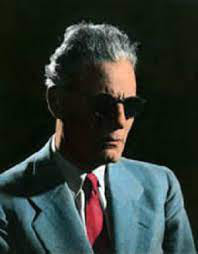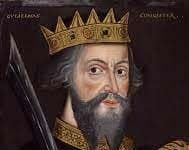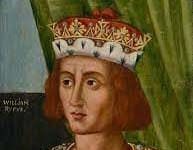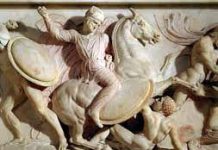Taha Hussein was an Egyptian writer, academic, and intellectual often referred to as the “Dean of Arabic Literature.” He played a pivotal role in modernizing Arabic literature and advocating for educational and cultural reform in Egypt.
Taha Hussein
Taha Hussein (1889-1973) was an Egyptian intellectual, writer, and professor who was one of the most prominent Arab thinkers of the 20th century. He is widely considered as the father of modern Arabic literature and is renowned for his contributions to the fields of literary criticism, literary history, and cultural studies.
Early Life and Education
T Hussein was born in the small village of Maghagha in Minya, Egypt, in 1889. Despite losing his eyesight at a young age, he showed a strong desire to learn and was sent to the nearby town of Bani Suef to study at a school for the blind. There, he excelled in his studies and went on to attend Al-Azhar University in Cairo, where he earned degrees in Arabic literature, philosophy, and Islamic law.
Career and Accomplishments
After completing his education, Taha Hussein worked as a teacher and later became a professor at Cairo University. He was also appointed as the Director of the Egyptian National Library, where he focused on preserving and cataloging Arabic manuscripts. In addition to his academic work, Taha Hussein was a prolific writer and is considered one of the most important Arabic literary critics of the 20th century.
One of T Hussein‘s most famous works is his book “On Pre-Islamic Poetry,” which is considered a groundbreaking study of the pre-Islamic poetry of the Arabian Peninsula. The book challenged traditional views of the time, which held that pre-Islamic poetry was purely oral and had no literary value. Instead, Taha Hussein argued that poetry was an important part of Arab cultural heritage and should be studied as a written form of literature.
Another of Hussein’s famous works is “The Future of Culture in Egypt,” which was published in 1930. In this book, Taha Hussein discussed the need for Egyptians to adopt a modern, secular culture while still preserving their Arab and Islamic heritage. He also argued that Egyptians should learn from other cultures and embrace Western ideas and practices that would help them progress and develop.
Taha Hussein‘s contributions to Arabic literary criticism and cultural studies earned him numerous accolades and honors, including being elected to the Egyptian Academy of the Arabic Language and being awarded the Order of Merit of the first class by the Egyptian government.
Later Life and Legacy
Hussein continued to write and teach until his death in 1973. Today, he is widely considered one of the most important and influential figures in Arabic literature and thought. His works have been translated into many languages and continue to be widely read and studied. 0 0 0
Taha Hussein: Comprehensive Biography
Early Life and Education
- Full Name: Taha Hussein
- Date of Birth: November 15, 1889
- Place of Birth: Izbet el Kilo, Minya Governorate, Egypt
- Family Background: Hussein was born into a lower-middle-class family, the seventh of thirteen children. His father worked as a civil servant.
- Blindness: At the age of three, Taha Hussein lost his eyesight due to improper medical treatment for an eye infection. This disability, however, did not deter his intellectual pursuits.
Education and Early Influences
Al-Azhar University: Taha Hussein began his education at a local kuttab (Quranic school) and later attended the prestigious Al-Azhar University in Cairo. There, he studied Islamic law, Arabic literature, and theology, but he was critical of the conservative educational methods.
Egyptian University: In 1908, Hussein enrolled in the newly established Egyptian University (now Cairo University), where he was exposed to Western literature and philosophy. He became one of the university’s first graduates, earning a doctorate in 1914 for his dissertation on the 14th-century poet Abu al-Alaa al-Maarri.
Academic and Literary Career
Studies in France: In 1914, Taha Hussein received a government scholarship to study in France. He attended the University of Montpellier and later the Sorbonne in Paris, earning a doctorate in 1919 for his thesis on Ibn Khaldun, the renowned Arab historian and philosopher.
Return to Egypt: After returning to Egypt in 1919, Hussein began teaching at Cairo University and was appointed the dean of the Faculty of Arts in 1928. He also became a leading figure in the Egyptian cultural renaissance, promoting modernist ideas and educational reforms.
Major Works and Contributions
“The Days” (Al-Ayyam): An autobiographical trilogy that provides a vivid account of his life, struggles, and pursuit of knowledge despite his blindness. The work is considered a masterpiece of modern Arabic literature.
“Pre-Islamic Poetry” (Fi al-Shi’r al-Jahili): Published in 1926, this controversial book questioned the authenticity of pre-Islamic poetry and suggested that much of it was fabricated during the early Islamic period. It sparked significant debate and criticism, leading to accusations of heresy.
“The Future of Culture in Egypt” (Mustaqbal al-Thaqafa fi Misr): In this work, Hussein advocated for the integration of modern Western education and culture into Egyptian society while maintaining its own cultural identity.
Political and Cultural Impact
Minister of Education: In 1950, Taha Hussein was appointed Egypt’s Minister of Education. He implemented policies aimed at making education accessible to all Egyptians, famously declaring that “education is like water and air” and should be free and available to everyone.
Advocacy for Modernization: Hussein championed secularism, rationalism, and the modernization of Egyptian society. He promoted women’s rights, cultural openness, and educational reform.
Awards and Recognition
Taha Hussein received numerous honors for his contributions to literature and education, including the ‘Legion of Honour’ from France and the ‘Nile Prize’ from Egypt. He was also nominated for the Nobel Prize in Literature several times.
Personal Life
Marriage: Taha Hussein married Suzanne Bresseau, a Frenchwoman he met during his studies in France. Their marriage was a partnership in every sense, as Suzanne helped him in his writing and translating works from French to Arabic.
Children: The couple had two children, a son named Moenis and a daughter named Amina.
Legacy and Death
Death: Taha Hussein passed away on October 28, 1973, in Cairo, Egypt. His death marked the end of an era, but his legacy lives on as one of the most influential figures in modern Arab thought and literature.
Legacy: Known as the “Dean of Arabic Literature,” Taha Hussein is remembered for his relentless pursuit of knowledge, advocacy for education and cultural reform, and contributions to modern Arabic literary criticism.
Conclusion
Taha Hussein’s life is a testament to the power of resilience and intellect. Despite his blindness, he emerged as a pioneering figure in modern Arabic literature and a staunch advocate for education and cultural progress. His works continue to inspire generations of readers and thinkers across the Arab world and beyond. 0 0 0
Taha Hussein: FAQs
Taha Hussein: Frequently Asked Questions
1. Who was Taha Hussein?
Taha Hussein was an Egyptian writer, academic, and intellectual often referred to as the “Dean of Arabic Literature.” He played a pivotal role in modernizing Arabic literature and advocating for educational and cultural reform in Egypt.
2. When and where was Taha Hussein born?
Taha Hussein was born on November 15, 1889, in Izbet el Kilo, a village in the Minya Governorate of Egypt.
3. Why did Taha Hussein become blind?
Taha Hussein lost his eyesight at the age of three due to improper medical treatment for an eye infection.
4. What are some of Taha Hussein’s most famous works?
Some of his most famous works include:
- “The Days” (Al-Ayyam): An autobiographical trilogy.
- “Pre-Islamic Poetry” (Fi al-Shi’r al-Jahili): A controversial critique of pre-Islamic poetry.
- “The Future of Culture in Egypt” (Mustaqbal al-Thaqafa fi Misr): A work advocating for educational and cultural modernization in Egypt.
5. Why was “Pre-Islamic Poetry” controversial?
In “Pre-Islamic Poetry,” Hussein questioned the authenticity of much pre-Islamic poetry, suggesting that it was fabricated during the early Islamic period to serve political and religious agendas. This view was considered heretical by many traditionalists and led to widespread controversy.
6. What role did Taha Hussein play in Egypt’s educational system?
As Egypt’s Minister of Education in the 1950s, Hussein implemented policies to make education accessible to all Egyptians, famously stating that “education is like water and air” and should be free for everyone.
7. Did Taha Hussein study abroad?
Yes, he studied at the University of Montpellier and the Sorbonne in Paris, where he earned a doctorate in 1919 for his thesis on Ibn Khaldun.
8. Who was Taha Hussein’s wife?
Hussein married Suzanne Bresseau, a Frenchwoman he met during his studies in France. She played a significant role in his life and work, assisting him in writing and translating.
9. How did Taha Hussein’s blindness affect his career?
Despite his blindness, he achieved remarkable success as a writer, academic, and public intellectual. His disability did not hinder his intellectual pursuits; instead, it fueled his determination and resilience.
10. What awards did Taha Hussein receive?
Hussein received several prestigious awards, including the ‘Legion of Honour’ from France and the ‘Nile Prize’ from Egypt. He was also nominated for the Nobel Prize in Literature multiple times.
11. What was Taha Hussein’s stance on cultural and educational reform?
He was a strong advocate for modernizing education and culture in Egypt. He believed in integrating Western knowledge and educational methods while preserving Egypt’s unique cultural identity.
12. When did Taha Hussein die?
Hussein passed away on October 28, 1973, in Cairo, Egypt.
13. What is Taha Hussein’s legacy?
Hussein is remembered as one of the most influential figures in modern Arabic literature and thought. His works and ideas continue to inspire debates on education, cultural identity, and the role of intellectuals in society.
These FAQs provide a concise overview of Taha Hussein’s life, work, and impact on literature and culture.
Sources:
“T Hussein: The Father of Modern Arabic Literature.” Egyptian Streets, 7 May 2018, egyptianstreets.com
“THussein.” Encyclopedia Britannica, Encyclopedia Britannica, Inc., 17 Mar. 2021, www.britannica.com/biography/Taha-Hussein.
N. B. This article originally belongs to the book, ‘Brief Biographies of Ancient Thinkers and Writers‘ by Menonim Menonimus.
Books of Biography by M. Menonimus:
- The World Writers-Brief Biographies
- Introduction to World Writers
- Introduction to World Personalities
- Love of Reputed Persons ..
Additional Searches:











